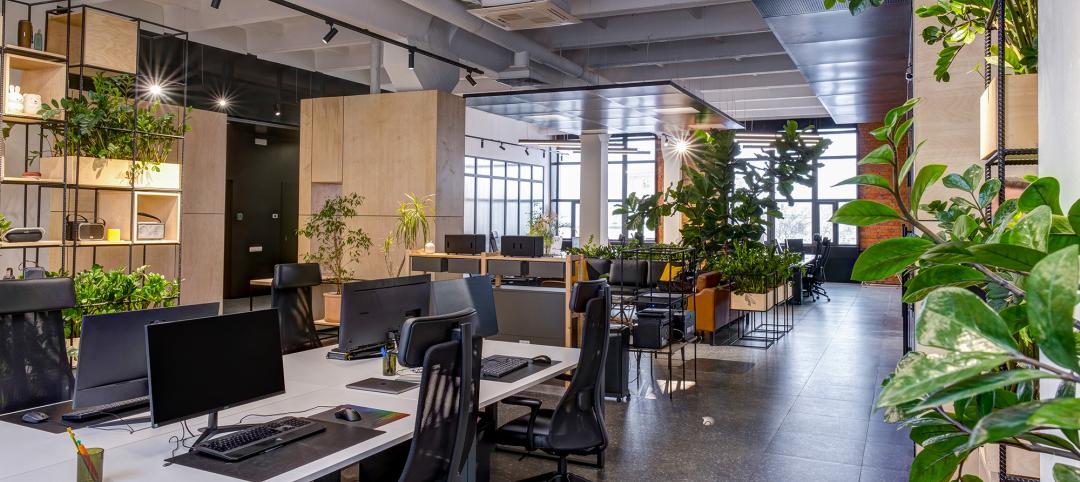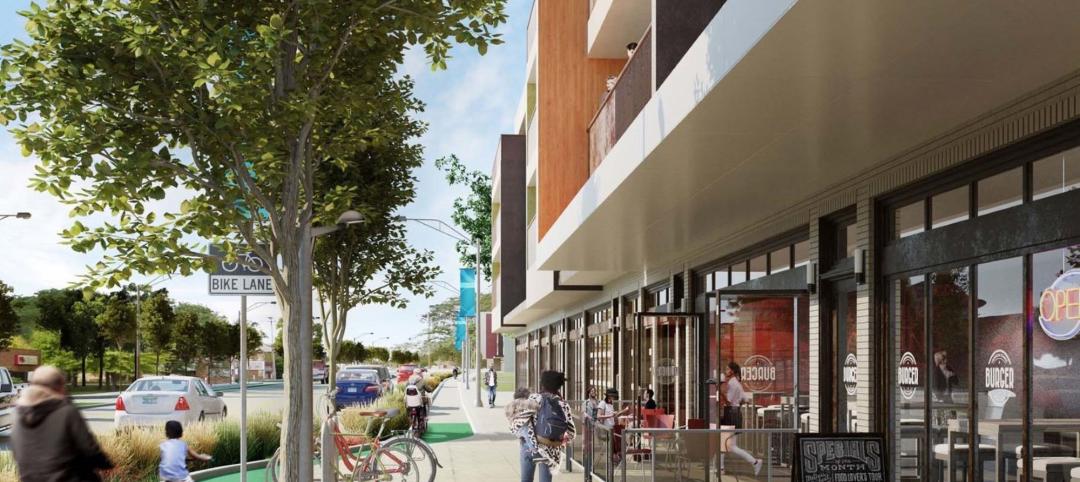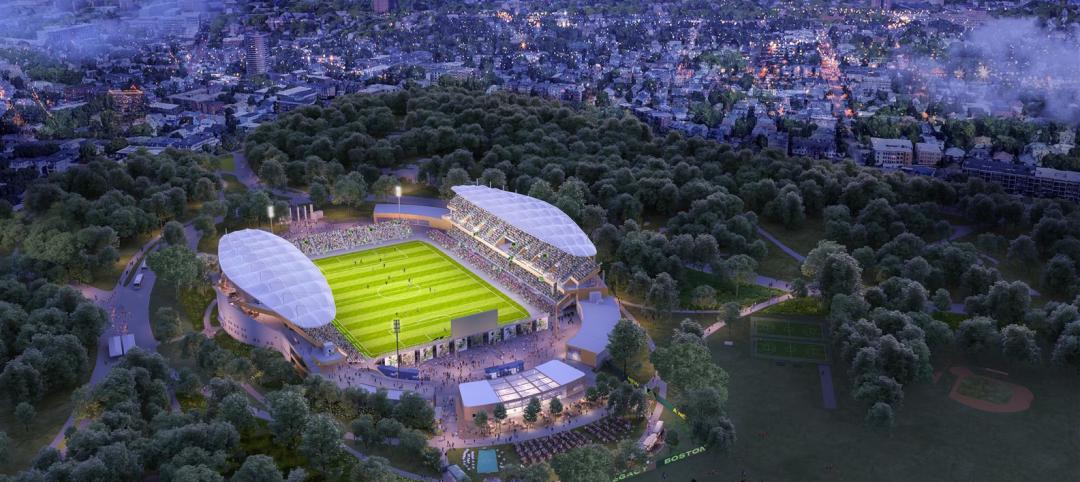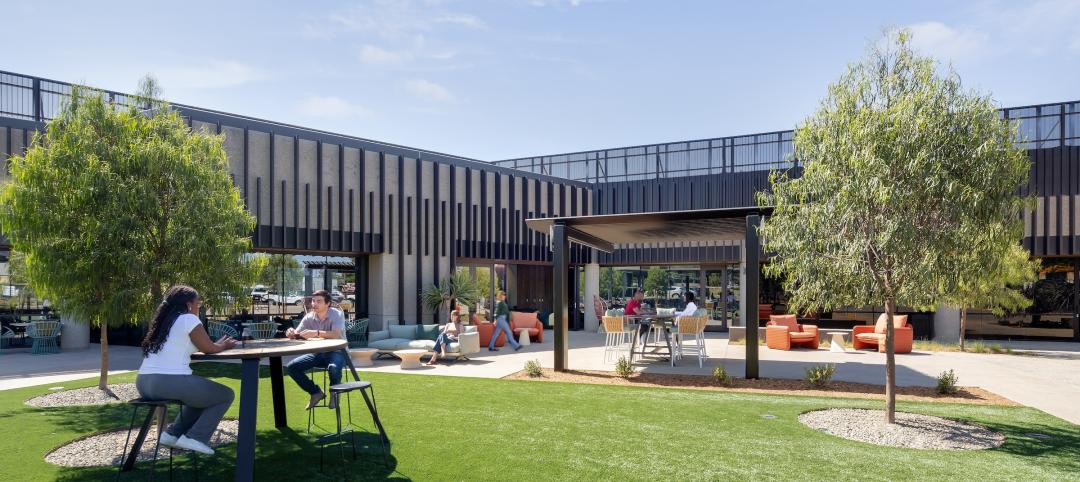Green jobs are now firmly established in the design and construction workforce, according to a new study released by McGraw-Hill Construction at the Greenbuild International Conference and Expo this week in Toronto. According to the study, 35% of architects, engineers and contractors (AEC) report having green jobs today, representing 661,000 jobs and one-third of the industry workforce. That share is expected to increase over the next three years, with 45% of all design and construction jobs being green by 2014.
“Green jobs are already an important part of the construction labor workforce, and signs are that they will become industry standard,” said Harvey Bernstein, vice president, Industry Insights and Alliances for McGraw-Hill Construction. “These numbers reported by the industry match our Dodge green building market sizing; so as green takes over construction activity, so too will green take over the construction workforce.”
The research also shows:
- AEC workers report green jobs on the rise at levels that match the McGraw-Hill Construction Dodge green building market sizing
- 35% of AEC firms focus on green jobs today, in line with the green building market share of 35% in 2010
- 45% of AEC firms expect to have green jobs by 2014, in line with the green building market share of 48%-50% by 2015
- Trades jobs (carpenters, HVAC/boilermakers, electricians, concrete/cement masons, and plumbers) are expected to see the greatest growth in green jobs; 15% of trades today are green jobs, and this is expected to increase to 25% in three years
- Green jobs yield advantages such as more opportunity (42%) and better career advancement (41%), according to respondents
- Training is essential for getting and maintaining green jobs; 30% of green job workers say they needed major training when they started, and most report that formal education and training programs will continue to be needed. Hiring firms agree; 71% of hiring decision makers maintain that being green-certified increases competitiveness.
This study is the first to focus exclusively on design and construction professionals and trades workers. “Green jobs” are defined as those involving more than 50% of work on green projects or designing and installing uniquely green systems, while excluding support or administrative professionals and manufacturing, production or transportation-related services. The premier partners include the U.S. Green Building Council and the American Institute of Architects. Other partners include the Society for Marketing Professional Services, National Association of the Remodelers Industry, and the Building & Construction Trades Department of the AFL/CIO. BD+C
Related Stories
MFPRO+ New Projects | Oct 30, 2024
BIG’s One High Line finally reaches completion in New York City’s West Chelsea neighborhood
One High Line, a luxury residential project spanning a full city block in New York’s West Chelsea neighborhood, reached completion this summer following years of delays related to investor lawsuits.
Urban Planning | Oct 30, 2024
Bridging the gap: How early architect involvement can revolutionize a city’s capital improvement plans
Capital Improvement Plans (CIPs) typically span three to five years and outline future city projects and their costs. While they set the stage, the design and construction of these projects often extend beyond the CIP window, leading to a disconnect between the initial budget and evolving project scope. This can result in financial shortfalls, forcing cities to cut back on critical project features.
MFPRO+ New Projects | Oct 30, 2024
Luxury waterfront tower in Brooklyn features East River and Manhattan skyline views
Leasing recently began for The Dupont, a 41-story luxury rental property along the Brooklyn, N.Y., waterfront. Located within the 22-acre Greenpoint Landing, where it overlooks the newly constructed Newtown Barge Park, the high-rise features East River and Manhattan skyline views along with 20,000 sf of indoor and outdoor communal space.
Libraries | Oct 30, 2024
Reasons to reinvent the Midcentury academic library
DLR Group's Interior Design Leader Gretchen Holy, Assoc. IIDA, shares the idea that a designer's responsibility to embrace a library’s history, respect its past, and create an environment that will serve student populations for the next 100 years.
Resiliency | Oct 29, 2024
Climate change degrades buildings slowly but steadily
While natural disasters such as hurricanes and wildfires can destroy buildings in minutes, other factors exacerbated by climate change degrade buildings more slowly but still cause costly damage.
Office Buildings | Oct 29, 2024
Editorial call for Office Building project case studies
BD+C editors are looking to feature a roundup of office building projects for 2024, including office-to-residential conversions. Deadline for submission: December 6, 2024.
Healthcare Facilities | Oct 28, 2024
New surgical tower is largest addition to UNC Health campus in Chapel Hill
Construction on UNC Health’s North Carolina Surgical Hospital, the largest addition to the Chapel Hill campus since it was built in 1952, was recently completed. The seven-story, 375,000-sf structure houses 26 operating rooms, four of which are hybrid size to accommodate additional equipment and technology for newly developed procedures.
Multifamily Housing | Oct 28, 2024
A case for mid-rise: How multifamily housing can reshape our cities
Often referred to as “five-over-ones,” the mid-rise apartment type is typically comprised of five stories of apartments on top of a concrete “podium” of ground-floor retail. The main criticism of the “five-over-one” is that they are often too predictable.
Sports and Recreational Facilities | Oct 24, 2024
Stadium renovation plans unveiled for Boston’s National Women’s Soccer League
A city-owned 75-year-old stadium in Boston’s historic Franklin Park will be renovated for a new National Women’s Soccer League team. The park, designed by Fredrick Law Olmsted in the 1880s, is the home of White Stadium, which was built in 1949 and has since fallen into disrepair.
Laboratories | Oct 23, 2024
From sterile to stimulating: The rise of community-centric life sciences campuses
To distinguish their life sciences campuses, developers are partnering with architectural and design firms to reimagine life sciences facilities as vibrant, welcoming destinations. By emphasizing four key elements—wellness, collaboration, biophilic design, and community integration—they are setting their properties apart.

















